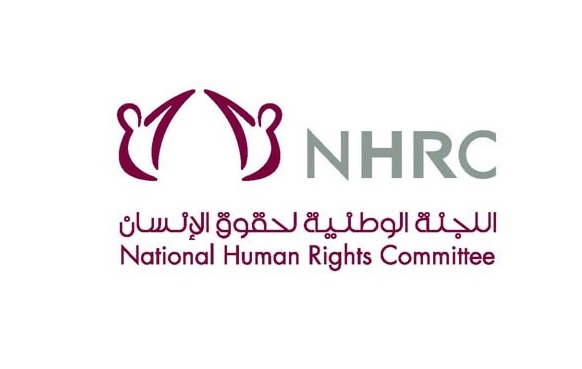The National Human Rights Committee celebrated the Qatari Human Rights Day, which falls on November 11 of each year, and coincides with the eighteenth anniversary of its founding, as it celebrated the front line volunteers and health leaders who contributed to work during the Corona pandemic / Covid-19 / in recognition and gratitude for their efforts in Confronting this pandemic that struck all regions of the world.
Mrs. Maryam Abdullah Al-Attiyah, Secretary General of the National Human Rights Committee, considered celebrating this occasion today as a confirmation of pride in the achievements made by the State of Qatar in promoting human rights, and a renewal of the commitment to support efforts to achieve more achievements and to continue the pace of reforms and development in the legislative system that enhances the rights of citizens and residents. Both, which made Qatar take the lead in protecting and developing human rights in the region, with the testimony of the international community and many international organizations.
She stressed the National Human Rights Committee’s keenness to ensure that this annual celebration is a station for evaluating achievements in the field of human rights, and an opportunity to support the development of the human rights system in the country through the efforts and recommendations it submits through its various periodic reports to the Qatari government, noting the efforts of the volunteers who formed the “line of defense.” Front “in the face of the Corona virus in the country.
She commended the efforts made by the volunteers, the “invisible soldiers” and others who came in the front lines in confronting the Coronavirus, pointing out that the National Human Rights Committee, in turn, was keen on being in the field and organizing field trips to educate and sensitize citizens and residents about this disease, and the importance of preserving health. As the right to health and life is one of the most important human rights stipulated in national and international laws and legislation.
Mrs. Maryam Abdullah Al-Attiyah also pointed out that “the celebration of the Qatari Human Rights Day is an opportunity to emphasize the achievements that the state has achieved and still are – to develop and protect human rights, especially the series of laws and legislations that it has taken to develop human rights, including laws concerned with improving working conditions.” And the residency of expatriates, “noting that the National Human Rights Committee welcomed earlier the issuance of Law No. (17) of 2020 issued by His Highness Sheikh Tamim bin Hamad Al Thani, the Emir of the country, regarding setting the minimum wage for workers and domestic workers, in addition to the decree of law No. (19) of 2020 amending the provisions of Law No. (21) of 2015 regulating the entry, exit and residence of expatriates, considering these measures “a milestone in the history of the reality of employment in the region, so that the State of Qatar takes precedence in adopting the non-discriminatory minimum wage in the region.”
In the same context, she said, “These decisions are a true indication that the State of Qatar is moving steadily towards preserving workers’ rights and taking care of them in line with its international, regional and national commitments, in addition to that they come in the context of improving the living conditions of workers in the State of Qatar,” adding that “Those reforms that the state undertakes also come out of respect and promotion of the basic principles of human rights.”
She explained that “the hierarchy of reforms undertaken by the state had a great impact on limiting violations of workers’ rights,” noting that “the State of Qatar has joined many international conventions and covenants, including its accession to the International Covenant on Civil and Political Rights and the International Covenant on Economic and Social Rights, which was positively reflected on The national strategies, policies and laws of the State of Qatar, most notably the Qatar National Vision 2030, which included a package of reforms based on human rights. Rather, a policy of gradual transition was adopted from a caring approach based on providing social services that guarantee citizens their rights to an empowering approach that stimulates active citizenship and participation. Popular. “
Mrs. Maryam Abdullah Al-Attiyah, Secretary-General of the National Committee for Human Rights, stressed that “the State of Qatar has in a short time become a pioneering country in human rights, and this is reflected through the implementation of its international obligations and its firm positions on regional human rights issues. Of the Human Rights Council on the rule of law that distinguishes them, and to appreciate the steady presence of institutions that preserve human rights in them.






























